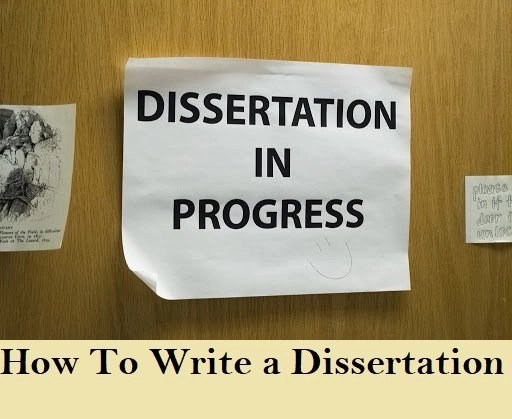
More often than not, most degree assignments end with this question, what is a dissertation? Some people still have a hard time differentiating Dissertation from Essay and thesis. In this article, we are going to extensively explain this terms in other to for us to have a better grasp of what each of them mean.
Meaning of Dissertation:
In some occasions, it is known as a thesis (while in a number of countries, this term is used only for the final assignments of PhD degrees, in other countries ‘thesis’ and ‘dissertation’ are used interchangeably), a dissertation is an Academic research work completed as part of a postgraduate or undergraduate degree. However, a dissertation gives students the opportunity to present their results in response to a proposition or question that they choose on their own. The objective of the project is geared towards testing the independent research skills acquired by students during their time at the university, and this assessment is used to determine their final grade. Although your lecturer/tutor is expected to guide you, the dissertation project to a large extent is meant to be done by the student alone.
For a lot of students, this will be the most difficult and most important assignment they will have to complete at university, requiring months of research, preparation, reading and hard work (the library and the internet might become a second home). Nevertheless, the academic exercise can be very rewarding, particularly if the topic you are working on is something you are interested in or passionate about. So it is imperative that you choose a topic that you are passionate about, so you don’t lose interest during the long hours of research.
I believe we now have a better understanding about what a dissertation is and how not to get confused when the term comes up. Thesis is not the only term people get confused with as relates to dissertation, some people get confused as to the difference between an essay and a dissertation. We will be explaining that next.
What is a dissertation? How is it different to an Essay?
An essay is relatively short in content when compared with a dissertation, an essay is usually 1500 to 2500 words long and you will be told what to do or what topic to write on, while a dissertation by definition means when it was first used in English language in 1651 an extended treatment of a subject. Also in Latin, the origin of the word “dissertare” which means ‘to debate’.
So what does it mean to debate? To debate means to talk about a number of ideas of subjects. So a dissertation will not just look at a subject, it will look at different points of view of the subject under discussion. A dissertation comes in pages, often times over 40 pages.
More on the meaning of dissertation, a dissertation is also defined as a substantial paper that is based on the originality of a research work, which also provides evidence of how the subject has mastered not just his/her own subject, but of the scholarly method applied.
A dissertation reveals the expertise of the writer on his/her subject, the different points of view and the key facts in it, however a dissertation also advances the perspective of the writer which is as a result of original research. Here, original does not mean that it has not been done before but instead it means something that one does for him/her self.
In other for you to have a better understanding of dissertation, I will provide more explanation as to what I mean by “reveals the expertise of the writer on the subject” or his “mastery of that subject”. The phrase is saying that you will have to do more, if you plan on writing a successful dissertation. On the other “scholarly method” means that more will be expected from you in terms of research, and better reading than you would normally do, for a standard undergraduate thesis. This means that your work will be expected to show skill and accuracy in discussion and investigation of a subject. Thereby providing critical analysis of a subject i.e. by looking at a subject and be able to weigh its advantages and disadvantages. This also means that you comprehend for example, aspects of particular perspective and theories are open to be questioned.
We have been able to comprehensively explain the difference between an essay and a dissertation and what it means to write a dissertation. The next question most people will ask it, how do I choose my dissertation topic? And how to I go about writing a successful dissertation in my PhD degree? Just as we initially stated at the beginning of this article, you will have a supervisor or tutor like they call it in some countries but structuring your dissertation is majorly dependent on you, so you would have to learn how to go about it, as your topic would not be chosen for you.
Dissertation Topics and Examples:
Interest/passion is always a major focus when deciding on a dissertation topic. These topics do not magically appear, one has to take time to think about them. Certain other students look for topics that fit already-collected data to ensure that their dissertation is researchable, such that their analysis and findings can be used for policy making and as well effect change. In some other cases, people decide on a project topic based on a particular population to which they have access to or based on a particular type of methodology in which they desire to use.
In all, it is important that you know that your choice of topic will determine how long it will take you to finish, as we already know, the dissertation takes weeks or even months to finish. For most PhD students, it is not an easy decision because of the uncertainty surrounding the decision. Questions like these bother doctoral students when they are about choosing a topic; 1) Is this worth investigating? 2) Has this topic been adequately researched on? 3) Are there any gaps to fill? 4) Is the scope manageable? How original does the work have to be?
To answer any of these questions, one has to adequately immense him/her self in literature synthesis, ethnographic analysis or what some others call literature review. This approach synthesize results/findings across numerous other studies.
Approach to Choosing a Topic
Like we have stated above, topics don’t just fall from above into the head of PhD students through deep thinking or meditation, there are conscious efforts that one needs to undertake to choose a topic. And they are;
- Engulf yourself in the relevant literature
- Discuss with your tutor/supervisor, your faculty as well as other scholars in that field.
- To harmonize your thought, write about your topic
It is common for you to consider three to five other topics before you decide on the one you feel most comfortable with. Writing and re-writing a topic at least once is normal, so do not feel that your indecision at the beginning means you don’t know what you’re doing.
In case you are still finding it difficult to come up with a topic, below are places you can look for potential topics
Where to Find Potential Topics
- The Internet: There are so many places online that one can find a topic.
- Library: You can always check some of the older projects that have been done, then find a gap or problem you can solve.
- Your own Professional Interest: Ask yourself, what excites you? Are there career goals that can be enhanced by working on a particular project?
- Your Supervisor/Tutor or Professional Colleagues: Speak with them and listen to their suggestions.
- Current Theories: Check for new theories in your field or existing theories that are being questioned.
- Oral Defense: Try to attend as many oral defense as possible, the discussions that ensure has a way of suggesting potential topics. The oral defense will also be an eye opener as to what happens during oral defense.
- Leading Scholars in your Interest Area: You can write or call other researchers or Scholars who have previously written about something similar, seek their advice also about potential topics.
- Conference and Seminars: Attend conferences or seminars, talk to authors and presenters to get their perspective on related issues.
Examples of Dissertation Topics
Below are some practical examples of dissertation topics;
Theatre Studies Topic: Theatre recreation within outdoor historical settings: An Empirical Investigation.
Accounting Topic: Non-profit Accounting: A review on Financial Reporting Requirements.
Mental Health Topic: Measuring suicidal intent amongst people who have survived drug overdose.
Nursing Topic: Working co-operative studies between care assistants and registered nurses: An observation study.
Philosophy Topic: The Simplicity of God and the Catholic Church, Malebranche
Economics Topic: An empirical Analysis into domestic debt and Inflation: A case study of Nigeria and Ghana.
So we have listed a number of dissertation topics from six different departments, this is just to show you examples of dissertation topics.
How to Structure Your Dissertation (With examples):
So at this point you must have developed an overall argument, asked all the right questions and responded to them, we also assume that you have chosen your dissertation topic while also having in mind the gap you plan to fill and the statement of problem.
Then you begin to think of how best to structure your dissertation, here you should note that the structure of your dissertation depends on a number of factors, which include research title, academic discipline and research approach. In summary, the structure of your dissertation depends on that of your department and their set rules, in a situation whereby you are confused, you should do well to consult with your academic supervisor.
First you have the;
Title Page: The title page contains research topic, the name of the author/researcher, the research supervisor, the name of the university, logo, the name of the student, title page, the student’s number and the submission date.
Acknowledgement: This part allows you to thank all those who were a source of help to you, while writing your dissertation project.
Abstract: This area provides you with the opportunity to write a summary of the project. Here you are expected to introduce the topic of discussion and the problem you aim to solve.
Table of Contents: This is a guide for each section of the dissertation, it helps organize your work so it looks organized and clear.
List of Figures and Tables: If you used illustrations, figures and tables in your dissertation, then you should present them in a separate section such as this.
List of Abbreviations: This is where you explain the meaning of abbreviations used within the dissertation.
Glossary: If you have used terms and phrases that may seem confusing to readers, you can explain them under a glossary list.
Introduction: Here you are expected to briefly introduce the relevance and purpose of the project topic. Also, you will be expected to outline the aims and the major objectives here, background information, relevance of the research, research problem and an overview of the dissertation structure.
Literature Review and Theoretical Framework: As a PhD student, this is where you are expected to present all previously reviewed research work done on the topic. This should give you are better understanding of what other authors have done in relation to your topic. Your literature review should be a summary of all previously done work, while also laying emphasis as to why your research topic is important and how it solves a particular problem or follows an already existing theoretical discuss.
Methodology: The techniques used either primary/secondary for collection of data are discussed in detail in this chapter.
Findings: This is where you show your findings, which is built around the research questions. You are meant to report only findings that are relevant to your work.
Discussion: This is the heart of the dissertation paper, it gives you the opportunity to conclude by answering the research questions, key themes, models and present argument.
Conclusion: This is where you close your argument in response to your research questions to close the loops available, in some universities doctoral students are also expected to include recommendations.
Reference List: Here you include all academic sources you cited in-text. Make sure to also consult your supervisor for the departmental referencing style, it could be APA, MLA, and Footnotes etc.
Appendices: Any irrelevant information to the research work like interview or transcripts, should be transferred to the Appendixes section.
In this article, we have been able to explain in detail what dissertation means, how it differs from essay writing, including tips on how to write a good dissertation, examples and how to structure your work. Doctoral students should definitely feel at ease when faced with the decision of their dissertation, after going through this article.


